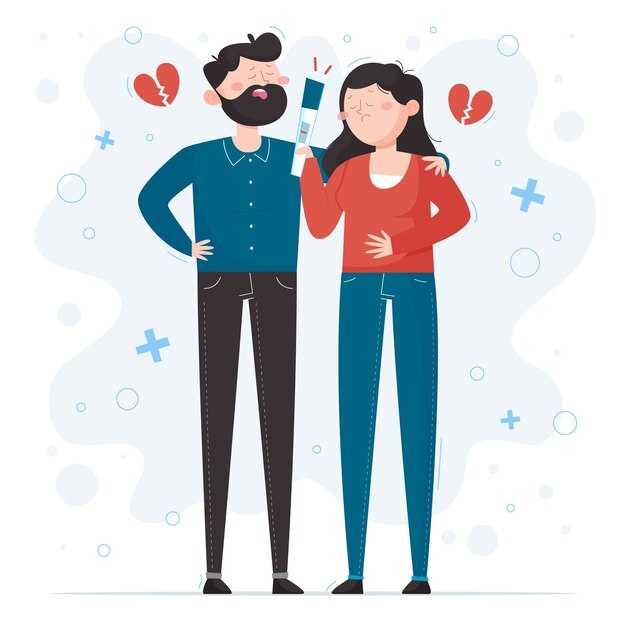Do you know what’s striking about people who run from love? It’s not that they don’t feel — they feel intensely — and their survival strategy becomes shutting everything down. The avoidant type, that person who once appeared calm, self-assured, and in control, builds a persona around never needing anyone. They persuade themselves that independence equals safety, vulnerability equals weakness, and distance equals peace. But therein lies the irony. Their walls don’t crumble when you chase them. They don’t fall apart because you beg for attention or demand explanations. Their defenses begin to crack when someone finally sees past the mask. When you stop engaging with their emotional games and start to perceive the truth, they are no longer strong because they remain distant — they are distant because they are terrified. They are not cold because they don’t care; they are cold because care feels like surrender. For a long time you may have interpreted their silence as rejection, taken it personally, replayed conversations, dissected each glance, pause, and delayed message searching for evidence of what went wrong. The reality is it was never about you. Don’t withdraw from yourself as if you don’t deserve love. They pull away because, somewhere in their past, they learned to pair closeness with pain. Intimacy meant exposure, exposure meant hurt, and so when someone finally sees and loves them fiercely, it triggers an inner conflict. One part of them craves that love desperately; another part flees with everything it has. That’s why avoidance falters — not under pursuit, but under cessation. When your energy shifts from proving your worth to calmly recognizing theirs, everything changes.
The human mind reacts strangely to clarity. When you stop playing their emotional games and cease fueling the avoidant cycle of push and pull, you deprive them of the script they’ve been following. Your quietness doesn’t merely confuse them; it forces them to face the void they were hiding in. For the first time, they cannot define themselves by your reactions; they can’t use your hurt to justify their walls. Then they feel something long buried: discomfort. Not the discomfort of confrontation, but the discomfort of truth. When an avoidant realizes you’ve stopped personalizing their behavior and finally see what drives them, their illusion of control crumbles and their emotional foundations begin to shake. So next time you feel helpless facing an avoidant’s distance, remember this: you don’t need to tear down their walls by force. All you must do is stop reacting to them. Your emotional detachment and clarity act like a mirror, exposing the deepest fears that their distance once hid. Avoidance collapses not because you chase, but because you understand.
To grasp why avoidance leads to withdrawal, look beneath the surface beyond the coldness, the pullback, the silence. Avoidance isn’t rejection — it’s protection. For many, love and avoidance are battlegrounds. They were raised believing emotional closeness is danger, that showing feeling brings disappointment, shame, or betrayal. So they learned a powerful survival tactic: stay away. Stay safe. They don’t know how to accept love openly; they only know how to manage it. For them, control is enacted through distance. Each time you move toward them, they instinctively retreat — not out of indifference but because closeness stirs the old emotional memories that once hurt them. That’s why avoidance often reads as emotional unavailability; underneath, there’s usually a profound longing for connection. They don’t know how to receive it without feeling exposed, so they choose silence over expression, distance over vulnerability, isolation over connection.
Here’s the difficult truth: when you chase, try to fix, or treat their barriers as your problem, you inadvertently teach them that closeness equals pressure. They feel suffocated, trapped, and they withdraw further. But when you stop trying to change them and begin to understand them, everything shifts. Understanding robs their fear of power. Seeing distance as an adaptive defense rather than deliberate refusal means you stop feeding the emotional drama they expect. You respond with calm, not chaos; with presence, not panic. Suddenly you become unpredictable. Avoidance thrives on predictable patterns — the push and pull that make them feel secure. When you stop performing that choreography, you step back. You emotionally disconnect not from spite but from clarity. The avoidant realizes you are no longer battling them. You see them. And that realization terrifies someone who has built an identity on not being seen.
As one observer once put it, people aren’t afraid of love — they’re afraid of being known. When you finally understand an avoidant person, you no longer play into their defenses. You recognize the human behind them. You stop trying to fix them; you watch and hold awareness. And awareness is something they cannot control. It strips away their ability to manipulate the emotional tone of the relationship. Suddenly they are the ones asking what changed, why your energy is so steady, why your silence feels heavier than words, why your peace unsettles them. Internally, avoidance begins to unravel — not because you punished them, but because you stopped believing their fear. You become the one thing they never expected: someone who understands without needing them. That is where your real power in understanding lies. Once you comprehend, you cease reacting. Once you stop reacting, you stop feeding them the control they depend on — the control they use to survive.
Avoidants sustain themselves by managing emotions through distance, but when you perceive their pattern, that control melts away. They can no longer hide behind the buffer of space because you see the fear that built it. They can’t manipulate you anymore because you no longer empower their silence. You have reached a kind of emotional mastery that doesn’t chase, beg, or fight for validation. In this quiet, in that deep internal understanding, the avoidant must reckon with what they’ve always fled: their own truth. Once someone can truly see them, they cannot continue to hide behind your confusion. Once you stop reacting, their distance no longer appears strong — it begins to feel hollow. That emptiness is what breaks them.
When you finally understand an avoidant person, and perceive their distance as fear rather than rejection, you break the invisible chain that trapped you in emotional pursuit. You transcend the pattern and step into your own clarity. By doing so, you become the mirror that forces them to confront what they’ve been avoiding: their heart. There comes a quiet moment — not angry or retaliatory, but clear — when the very person who made you question your worth, who drove you to introspect every word, stands exposed before your calm. You’ve realized something fundamental: chasing someone who fears love will not make them love you more. It will only confirm their belief that love means losing control. Avoidants don’t respond to emotion as much as to energy. The more frantic your energy, the farther they pull away. But when your presence is calm, whole, and detached, something inside them starts to break because the chaos that once felt like safety is no longer there. You stop justifying yourself. You stop pleading for their time. You stop trying to mend what was never yours to repair. For the first time you look at them through understanding rather than pain, and you finally know their avoidance isn’t about your worth — it’s an old pattern, a defense erected long before you arrived.
That realization triggers a transformation — not in them at first, but in you. The second you stop being the one who reacts, you become the one who observes. You no longer live at the mercy of their silence. You begin to live by the force of your own peace. That is what true clarity does: it converts reaction into reflection. You learn you don’t need to shut yourself off because understanding provides closure. You don’t chase their validation because your equanimity is validation enough. Slowly you recognize that emotional freedom was never about forcing them to stay; it was about freeing yourself from the dependency on them. When you cease the chase, the dynamic collapses because the avoidant thrives on predictability — the dance of withdrawal and pursuit. They anticipate a reaction and feed on it unconsciously because it keeps them in control. But when you break that pattern and refuse to behave as expected, their control evaporates.
This isn’t about ignoring them or playing games. It’s about comprehending them so deeply that their actions are no longer personal. Once you stop taking it personally, you enter a place of emotional mastery — steady, calm, and magnetic. Suddenly your silence isn’t absence; it’s power. Your calm is not indifference; it’s strength. They sense this shift even if you don’t speak. They feel the energy that used to chase them become unreachable. You have stopped orbiting their avoidance; you’ve entered your own gravity. The more you maintain your peace, the more their peace starts to crumble within them. You don’t attempt to heal their wounds; you allow them to meet those wounds themselves. Avoidance can become a catalyst for love because understanding undermines their illusions. Understanding reveals that their avoidance was never power — it was fear, wearing confidence like armor. Once you see it, you cannot unsee it. That is the turning point: the move from pursuit to clarity, when your peace outweighs their silence and your understanding outshines their avoidance. When your calm presence speaks what their words could never say, the power balance flips.
They once stepped back to test your reaction; now they step back and feel your absence. Distance that used to feel like safety now feels like loss. They used to define connection through avoidance; now they cannot define it at all because you have changed the frequency of the relationship. You are the unexpected constant — grounded, resilient, unshaken, aware — and awareness is the one thing that disrupts every emotional game they know how to play. When you refuse to react, your silence becomes a mirror so potent that it reflects every fear, insecurity, and buried feeling they’ve used distance to drown out. Suddenly the quiet they once craved turns into the turmoil they can’t manage. They spent their life equating emotional distance with safety, believing silence meant strength. But when silence is wielded as clarity and protection for your own peace, it overturns the entire pattern. Your silence is not born from fear — it comes from understanding. It isn’t avoidance; it is presence. And presence is something they cannot defend against.
At first, they will try to convince themselves your silence doesn’t affect them — they’ll pretend not to care. But deep down, something shifts because their sense of control is gone. You stopped being the emotional mirror that validated their safety in distancing. You stopped feeding their superiority, and you withheld the validation that made avoidance feel secure. Left alone with their thoughts and the emptiness that distance once filled, the avoidant confronts the truth that their control was borrowed from your reactions. With those reactions gone, their illusion collapses. They might not voice it, but they feel it. Losing your emotional energy affects them more deeply than any accusation because they relied on it as a steadying force. Your warmth, your pursuit, your care had allowed them to avoid vulnerability without truly being vulnerable. When that energy disappears, they must face a frightening possibility: they may have lost something genuine.
This is when avoidance begins to crack — not in dramatic apologies, but quietly, within the same silence they once used against you. They start to perceive that your understanding cannot be replaced. Understanding isn’t mere attention; it’s depth. When someone truly sees them, the contrast of what was real versus what they kept at bay becomes unbearably heavy. Avoidants spend their lives believing they can control connection by controlling distance, but when you stop reacting and begin to notice that they are losing what mattered most to them — their sense of control — it unsettles them and starts to transform them. They wonder why they miss you, why a hollowness has invaded their peace, why silence no longer feels safe. What they experience is the emotional rebound of all the walls they constructed. Those walls that were meant to protect now prevent them from the one connection that ever truly understood them. Your calm becomes the mirror exposing their disorder; your silence is the space where their defenses echo. Gradually they begin to see themselves, not you or the relationship. And this is the seed of change: people don’t change from being chased — they change when your peace forces them to meet the version of themselves they have been running from.
Avoidance always collapses when it’s finally understood because that understanding removes the illusion of control they once wielded. It reveals that their distance was not strength but fear, their coldness not indifference but pain. When your tranquil presence compels them to confront that fact, they experience something they never expected: they don’t just lose someone who needed them — they lose someone who truly understood them. Their cracking is subtle, like hairline fissures under a long-held mask. They maintain the same distance and composed exterior, but they sense a change they cannot name. They feel transformation — not in you but within themselves — because the person they once dominated with their avoidance, the person who chased, explained, and tried to fix them, has gone. In your place stands something unpredictable: peace. Peace is the one thing an avoidant doesn’t know how to handle. They built their emotional world around evading chaos, but they never learned to live in calm.
After you step away, after your silence and separation, their retreat no longer serves as escape. It was a method of fearing closeness, of not being seen, of buffering against pain. But when your energy becomes still and detached and when your silence embodies understanding rather than hurt, it forces them to face what they have always avoided. They notice your absence in ways they didn’t anticipate. At first it’s puzzling: you don’t respond as before, you don’t seek reassurance or closure, there’s no argument or emotional outburst — just silence. And that silence speaks more loudly than any confrontation. In the quiet, they feel exposed. Avoidance flourishes on control — covering, pulling back, always a step ahead — but when their pattern is no longer rewarded by reaction, they lose their rhythm. Suddenly their shelter isn’t safe; it feels empty. The weaponized silence becomes a mirror in which they see fear, loneliness, and regret. Your understanding becomes that mirror. You no longer experience them as harsh or uncaring; you see them as frightened. You accept that their avoidance is protection, and when you hold that without judgment, without needing to fix it, something inside them begins to crack. For the first time someone has seen through their armor and did not try to break it — they simply understood. The shield fractures.
They begin retrieving memories — small, quiet moments of kindness, times you offered patience they did not deserve, the tone in your voice, your presence — and begin to realize that what they pushed away wasn’t a threat but connection. They ask themselves why they couldn’t let it in, why every approach triggered panic, why they pulled away when you explained your feelings. Once, they told themselves the distance was peace. Now it feels like punishment. In your calm, they finally feel the weight of what they lost. Avoidance doesn’t collapse because you punish them or because they feel shame; it collapses when they discover your understanding is not weakness but power, and your silence is not absence but presence. They see your calm is the peace they have always wanted but never learned to produce themselves. This recognition is devastating because, for the first time, they cannot flee from the truth. You took away the chase, the drama, the chaos they used as cover. You left them in stillness, and in stillness they must meet their own feelings. This is where the breakdown begins — quietly — in midnight recollections, in a song that sounds like your voice, in the sudden awareness that they can’t reach you because you are no longer waiting. They realize the person they assumed would always be there is gone — not because you withdrew out of indifference, but because you finally understood.
Understanding changes everything. It ends the emotional power struggle. It removes the fuel that kept the cycle spinning. It is not cold or cruel — it is clarity, and clarity dissolves every illusion an avoidant relied upon. When you see them plainly, without judgment, you strip away the control they had once wielded. You become the calm center in their storm, and this calm becomes unbearable because it unmasks their disorder. Yet this is also the start of healing for both of you. Once you stop chasing, healing can begin. Stop waiting for validation and create your own peace. Stop measuring your value by their attention and find strength in your stillness. You learned that love is not about control; it’s about understanding. Once you understand, you no longer need to cling. Your silence does not mark the end of the story — it marks the beginning of your freedom. It is the moment you accept you don’t have to convince anyone of your worth. Those who are meant to stay won’t require pursuit; they will meet your peace with peace, your understanding with presence. For avoidants, your silence will reverberate because they will feel your absence long after they find their own peace. They will replay every moment they assumed would be guaranteed and sense the weight of every time they retreated when they should have remained. Even if they never voice it, they will know they lost something rare — not only your love, but your understanding — and that is what causes avoidance to break: not merely remorse, but the dawning awareness that you saw them in a way no one else had. You forgave them silently by leaving.
There is enormous power in this kind of peace. It does not shout or prove; it simply exists and says, “I understand why you ran, but I will not wait indefinitely for you to stop.” This calm acceptance is unforgettable because it carries no bitterness or grievance — only wisdom. It will remain with them. They may try to replace you, look for distraction and comfort, but nothing will fill the gap because what they miss is not attention; it is the quiet comprehension that comes only from someone who truly saw them. When you understand an avoidant, you change the narrative. You stop being the victim of their silence and become the mirror of their truth. Your power is no longer in reclaiming them — it’s in knowing you could, yet choosing not to because you have outgrown the version of yourself that needed to be chosen. You have learned that closure doesn’t come from their apology; it comes from your awareness. You learned that love need not be synonymous with suffering, and that leaving pain behind is sometimes stronger than staying through it. Perhaps, in time, they will change. Maybe they will finally face the emotions they buried and learn to let love in without fear. But that is no longer your responsibility. Your role in their story was never to fix them; it was to wake them — and by not participating in the same old cycles, you did exactly that.
Now it’s your turn to grow: to take what you learned about love, fear, and attachment and build something healthier. You have already proven your capacity to love deeply. Now learn to love yourself with the patience and understanding you once gave them. The avoidant will crumble, but you will rise — above the confusion, the hurt, the endless waiting — into clarity, strength, and peace. You come to see that the lesson wasn’t about them; it was about you: recognizing your worth independent of someone else’s response, and understanding that empathy is more powerful than reactivity. With this realization everything shifts. Bitterness fades, questions lose their edge, and their silence no longer wounds you — it becomes wisdom and serenity.
This transformation does not need dramatic fanfare. It unfolds slowly, quietly, like healing always does. One day you wake to find their distance no longer cuts in the same way, your thoughts are no longer consumed by bewilderment, and you stop asking why and start saying thank you. Because ultimately, every person who fears love teaches you something about your own strength. Every person who avoids vulnerability reminds you how deeply you can feel. Every heartbreak shows you what it really means to see someone clearly — not to fix them or rescue them, but to recognize them and choose peace. That’s the ultimate lesson: you don’t win by making them return; you win when you no longer need them. Healing doesn’t come from their closure; it comes from your own. You don’t match their silence to find power; you turn it into stillness and build from there. Let them run if they must. Let them keep their silence, because your understanding has already changed everything. You have stepped out of the emotional theater and into clarity. You saw past the mask, and once truth is seen, pretending is impossible. Maybe someday they will see it too. Maybe they will look back and realize you weren’t the one who made them feel uneasy — you were the one who showed them what true love feels like. Perhaps, possibly, they will recognize that losing someone who understood them was the alarm they needed to finally face themselves. But even if they never do, that burden is not yours. Your healing is yours alone. Your peace is yours alone. The steady, quiet understanding you carry is your freedom.
In the end, avoidance collapses not because they lose your love, but because they lose the energy that once saw them, accepted them, and stopped needing them. When that energy vanishes, all that remains for them is an echo of what might have been. You walk away whole — wiser, stronger, and more peaceful. You separate from a peace that cannot be shaken by another’s fear because you have learned the greatest truth: love isn’t about making someone stay; it’s about knowing when to let go with grace. That is the power of understanding. It is not about control or punishment; it is about liberation — freeing yourself and leaving the avoidant to confront the one person they always avoided: themselves.


 Избегающие всегда рушатся, когда вы наконец понимаете это | Мотивационная речь Джордана Питерсона.">
Избегающие всегда рушатся, когда вы наконец понимаете это | Мотивационная речь Джордана Питерсона.">

 The ‘Magnet’ Trap: Why Super Empaths Always Attract Avoidants">
The ‘Magnet’ Trap: Why Super Empaths Always Attract Avoidants">
 What she WANTS during a FIGHT!">
What she WANTS during a FIGHT!">
 The One Thing You MUST Say to Avoidants… Before They Disappear for Good | Avoidant Attachment Style">
The One Thing You MUST Say to Avoidants… Before They Disappear for Good | Avoidant Attachment Style">
 You don’t deserve to be ABUSED! || Narcissism is abuse">
You don’t deserve to be ABUSED! || Narcissism is abuse">
 I Neglected my Relationship.">
I Neglected my Relationship.">
 Великие Дружбы Растут, Когда Вы Осваиваете Эти Навыки">
Великие Дружбы Растут, Когда Вы Осваиваете Эти Навыки">
 Если вам нужны брак и дети, вот что делать">
Если вам нужны брак и дети, вот что делать">
 Вы ДЕЙСТВИТЕЛЬНО заботитесь о том, что чувствует ваш ПАРТНЁР?">
Вы ДЕЙСТВИТЕЛЬНО заботитесь о том, что чувствует ваш ПАРТНЁР?">
 Почему она больше НЕ В НАСТРОЕНИИ">
Почему она больше НЕ В НАСТРОЕНИИ">
 Нарциссизм против избегающей привязанности">
Нарциссизм против избегающей привязанности">